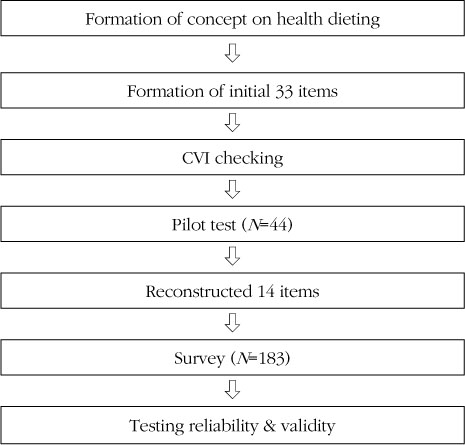1Department of Nursing, Pukyong National University, Busan, Korea.
2National Cancer Center, Goyang, Korea.
© 2014 Korean Society of Adult Nursing


CI_TC=corrected item-total correlation; ID=item deleted.
CI_TC=corrected item-total correlation; ID=item deleted.